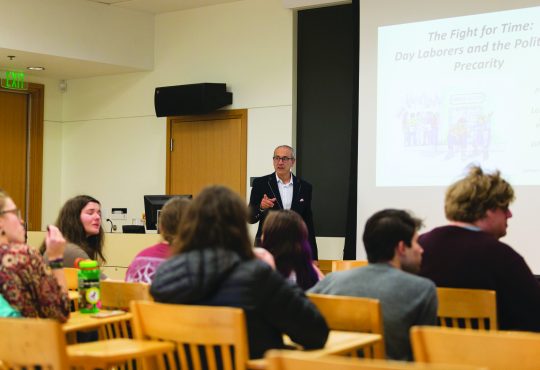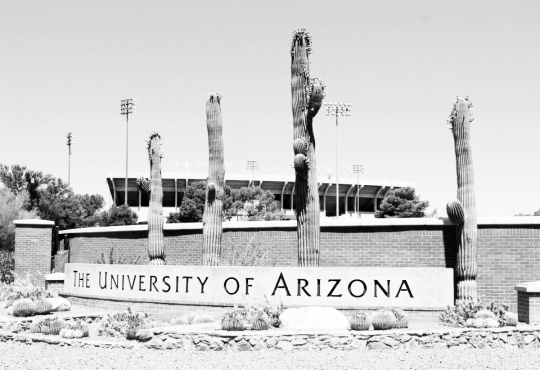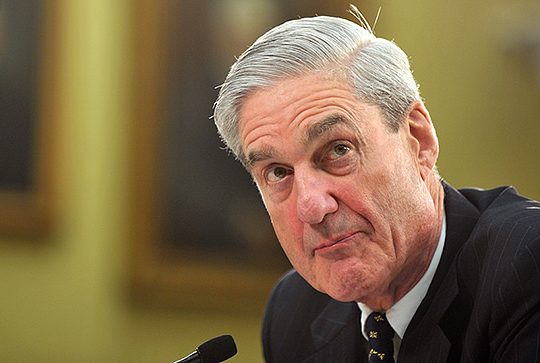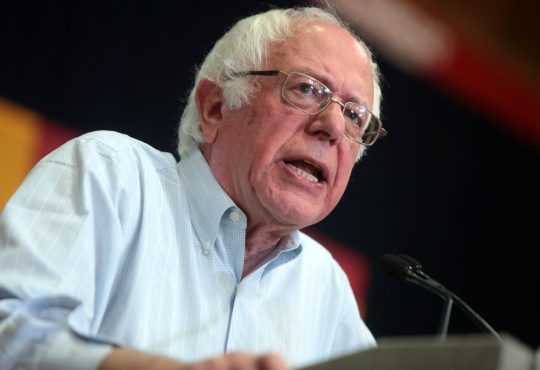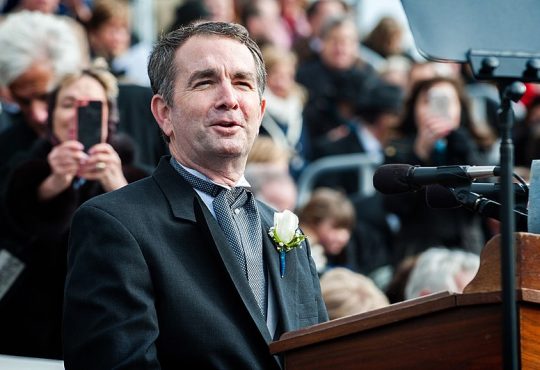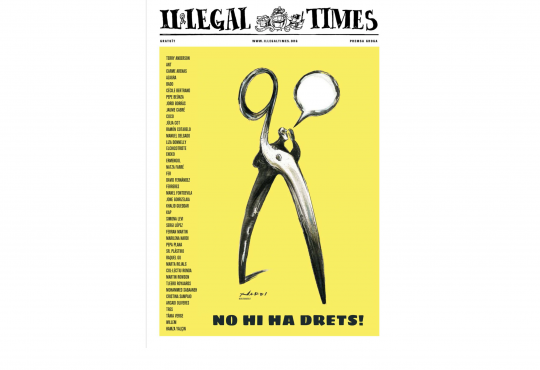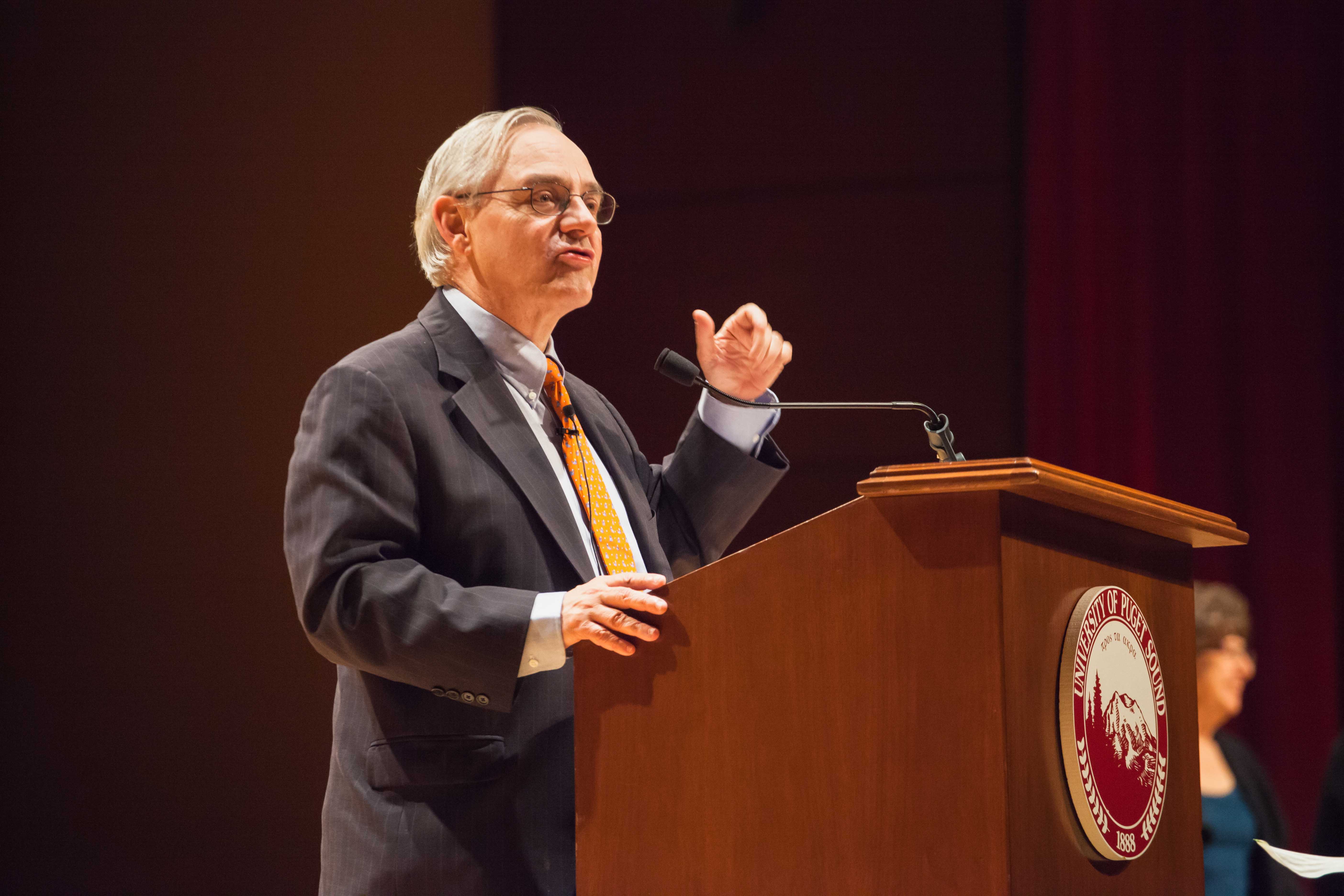
If you ask many Americans what they think about the current political climate, they’ll probably grumble something about Obama and how Congress can’t get anything done. Washington Post reporter and writer E.J. Dionne will basically say that too, but he actually knows what he’s talking about.
On Mar. 25, E.J. Dionne delivered the Spring Lecture for Puget Sound’s Susan Resneck Pierce Lectures in Public Affairs and The Arts. Entitled Our Divided Political Heart: The Battle for the American Idea in an Age of Discontent, the lecture explored the various problems of our current divided government and possibilities for reconciliation.
Dionne is a reporter of The Washington Post, a Rhodes Scholar, a fellow at the Brookings Institute and a writer of several books on public policy, including Why Americans Hate Politics and Souled Out: Reclaiming Faith and Politics After the Religious Right.
Schneebeck Hall was completely full, its audience comprised mostly of politics majors and middle-aged members of the community. President Ronald Thomas introduced the lecturer with a funny anecdote that involved pasta and NPR.
Dionne walked onstage, diminutive and smiling in glasses and a suit. He praised Ron Thom’s charming introduction, comparing it to the one he got when speaking at a college in the Midwest: “And now for the latest dope from Washington, here’s E.J. Dionne.”
Dionne reflected on his book, an unabridged version of the lecture, calling it hopeful.
“[The book] grew out of my love for the American story and its tension,” he said.
He discussed the role the Tea Party movement has played in bringing our political conversation back to American history and the origins of our country. Dionne questioned why the left-wing couldn’t do the same. He offered counterpoints to conservative “anti-government” claims, suggesting that the Declaration of Independence and Constitution support the idea that the founders in fact wanted to strengthen our government.
Dionne claimed that American politics is driven by two ideals: a love of individualism and a love of community. He thinks that we’ve strayed from the latter while wholeheartedly embracing the former.
After reciting the preamble to the Constitution and emphasizing the “We the people” part, he exclaimed, “We don’t say we very much anymore in this country!”
Though he spent a large amount of time countering conservatives, Dionne ultimately got down to his main point.
“I would like to see a time when conservatives and progressives can reason together again,” he said.
For this radical idea, Time Magazine saw it fit to call the clearly left-wing Dionne “a radical centrist.” He himself has a problem with the label, saying, “I worry about the word ‘center.’ Relative to what?”
Dionne finished his lecture by calling upon the students in the audience to change American politics. He believes this might take awhile, and sees the radicalization of conservatism as a major obstacle. In order to make this change happen, he claimed the country needs discourse. Because after all, America is just “one nation conceived in argument.”
After finishing the lecture to much applause, Dionne answered questions from the audience. He fielded questions about conservatism, his political affiliations and the judicial system. He expressed his frustration with the Supreme Court, judicial activism and the pervasiveness of anti-government sentiment in conservative talking points.
One man asked him what he thought of a possible restoration of the draft. Dionne responded that a very small number of people doing the fighting for all of us didn’t seem very fair. But, he noted, the military did not seem to be very interested in a restoration of the draft and he couldn’t see the idea becoming popular in the near future. He instead suggested opening up service opportunities (not just in the military) for every American as a universal call to service. “We need to give something back,” he said.
After the event, some audience members headed to the reception in Wyatt Hall, while others gathered outside to talk about what they had just heard. Freshman Dana Donnelly said that she thought Dionne was an exceptional speaker.
You can discover more of E.J. Dionne’s work in The Washington Post, on National Public Radio or in one of his many books. The latest shares the title of his lecture, called Our Divided Political Heart: The Battle for the American Idea in an Age of Discontent.

